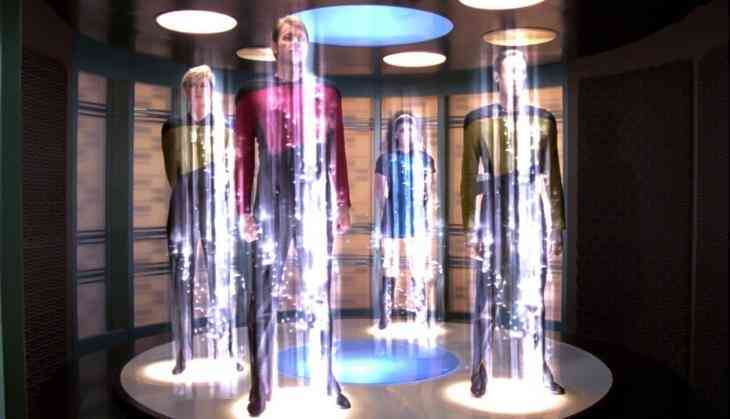Beam me up, shortly: Teleportation takes a gigantic leap forward

Ever since we first watched it in Star Trek, the world has dreamed of teleportation and the many avenues it would open. Travel would be instantaneous, and deliveries too! Apart from ridding us of nauseating airline food and confused delivery boys, the sheer convenience of teleportation would revolutionise life as we know it. And, less than 24 hours ago, we just got a step closer to it.
Researchers in China just managed the first instance of teleportation from Earth into orbit, sort of like the way members of the Starship Enterprise moved from their ship to the various planets they encountered. However, while that may sound absolutely incredible, the science of teleportation is so nascent that the reality of what was achieved is markedly less exciting than transporting humans – the researchers managed to teleport a single photon.
Teleportation is real...
Just not how you imagined it. Decades of pop-culture depictions have conditioned us to think of teleportation as the sort of tech magic we witnessed in sci-fi movies. However, actual teleportation is a long way away from this grand vision.
The sort of teleportation scientists have managed to achieve is on the quantum level. Scientists are able to use a quantum property called entanglement to achieve the feat of teleportation. In entanglement, sets of quantum particles (in this instance photons) are formed at the same point in space and time. Their existence, therefore, is shared. Curiously, this 'entanglement' doesn't change when the particles are moved away from one another. This means that even when they are moved apart, a change in the state of one particle will reflect in the state of its sister particle.
This ability to transfer a quantum state from one point to another, without any actual physical displacement is what is meant when we talk about real world teleportation, like in today's instance.
To infinity and beyond
While teleportation has been around since the late nineties, it has largely been inside the confines of a laboratory. Teleportation in an outdoor setting, however, is far more recent. In fact, it was only in 2016 when scientists first managed quantum particles through fibre-optic cables in an outdoor setting. Then, the distance covered was just over seven kilometres. This latest achievement, though, absolutely dwarfs the 2016 achievements.
For starters, not only is it the first instance of Earth-to-orbit transportation, but it is also the longest teleportation distance (500km). This is especially important, because despite quantum teleportation not being limited by distance in theory, the weakness of entanglement connections has meant that long distances have thus far been a major stumbling block in quantum teleportation.
To achieve this feat, the Chinese team created around 4,000 quantum pairs, beaming one particle from each pair into orbit to a satellite called Micius. Micius is an extremely sensitive photo receptor, put in space by the Chinese to experiment with transportation and entanglement. Once this was done, scientists measured both particles to determine whether they were, indeed, entangled.
Speaking to MIT Technology review, the Chinese team said, “Long-distance teleportation has been recognized as a fundamental element in protocols such as large-scale quantum networks and distributed quantum computation,” adding, “Previous teleportation experiments between distant locations were limited to a distance on the order of 100 kilometers, due to photon loss in optical fibers or terrestrial free-space channels.” While Star Trek-like teleportation may still be a way away, the possibility of a pan-Earth quantum internet just got a lot closer.

